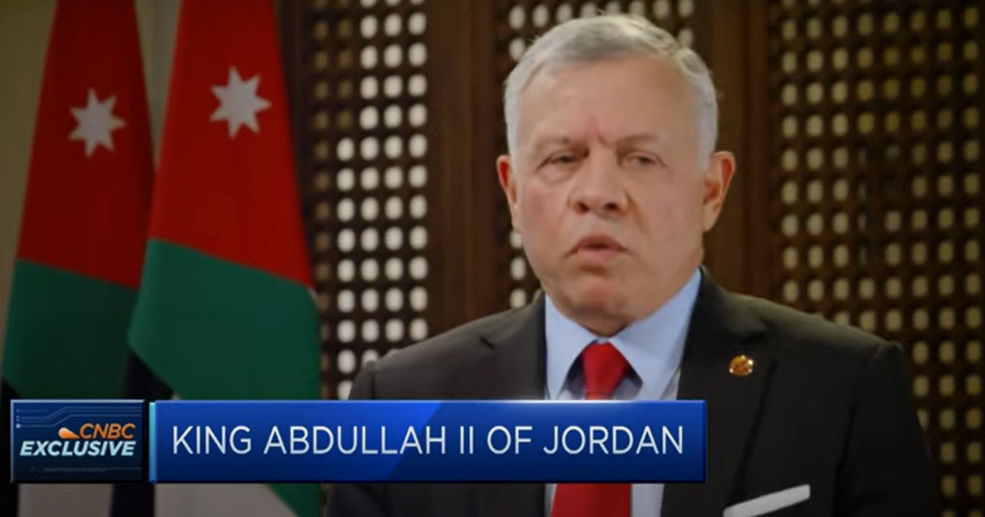Jordan is actively demonstrating solidarity with the Palestinians and Hamas in their conflict with Israel.
The nation is engaging on both the international and inter-Arab levels to halt the IDF’s attack on the Gaza Strip.
Queen Rania, of Palestinian origin, has questioned aspects of the Hamas massacre of Israeli citizens on October 7 in international media. Meanwhile, King Abdullah has twice authorized the delivery of medical equipment to Gaza, using a Jordanian military plane for the field hospital established there.
Although the medical aid received Israel’s approval, the Jordanian government persists in efforts to discredit Israel internationally.
The situation in Jordan remains unstable, marked by large demonstrations supporting Hamas and Gaza residents. Attempts have been made to reach the Israeli border in the Jordan Valley, prompting the Jordanian army to take precautionary measures and deploy reinforcements along the border.
King Abdullah perceives a threat to his rule and is attempting to channel Palestinian anger within his kingdom towards Israel.
On November 13, Jordanian Foreign Minister Ayman Safadi accused Israel of crossing red lines, warning that any attempt to transfer Palestinians to Jordan would be considered a declaration of war.
While emphasizing that Jordan won’t go to war, Safadi stressed that Jordan would act on all fronts to denounce Israel’s actions as war crimes.
The King’s staunch anti-Israel position is not new, as demonstrated during the “Guardian of the Walls” operation in the Gaza Strip in May 2021.
King Abdullah aims to preemptively neutralize any revival of the “Jordan is Palestine” idea, fearing that Palestinians, rejected by Egypt in Sinai, might be directed to Jordan.
He also fears Israel might encourage immigration from Judea and Samaria to Jordan.
Jordan sees the IDF overthrow of the Hamas government in Gaza positively, as it aligns with the King’s support for a two-state solution.
This solution would involve the return of the PA to control the Gaza Strip, allowing the establishment of a Palestinian state within the 1967 borders.
With over 70 percent of Jordan’s residents being Palestinians, the Jordanian Parliament, though anti-Israeli, recommended renegotiating the 1994 peace agreement with Israel, linking it to a cessation of the war in Gaza.
However, this recommendation is non-binding, considering Jordan’s dependence on water from Israel and its inclination to follow President Biden’s lead.
King Abdullah, fearing Hamas, refuses to allow the organization to reopen offices in Jordan.
He recognizes the potential threat it poses, recalling the events of “Black September” in 1970 when King Hussein expelled the PLO from Jordan after they attempted to overthrow his regime, leading to a massacre of Palestinians.
Jordan’s support for Hamas appears to be more of a diplomatic gesture than genuine alignment, serving as lip service to portray itself as sympathetic to Hamas’ positions against Israel.




